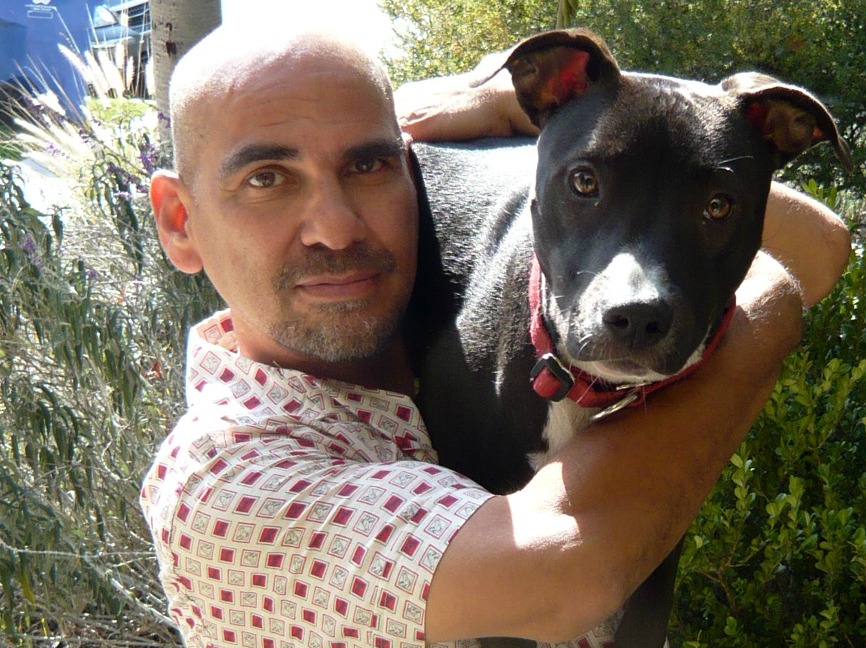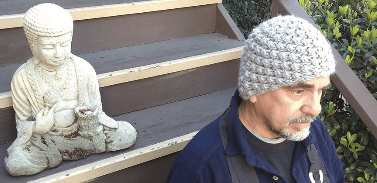
When is the story beneficial in dealing with racism?
July 1, 2021
 by Conrad Butsugen Romo
by Conrad Butsugen Romo
As a person of color, I am not insensitive to racism, having personally experienced various acts from being called derogatory names, to being followed by security in stores, to being pulled over while driving numerous times because I didn’t look like I belonged in a particular neighborhood or I fit a description. The most recent time this happened, cops approached my car with guns drawn and this just a few blocks after I had left ZCLA from a dharma talk.
I’m not insensitive to addictions, be they of the mind or habits with drugs/alcohol. I was an ardent cult member for 14 years. I’ve also been sober from drugs and alcohol for 31 years, so the lived experience of struggling to stop something that is unhealthy but seemingly impossible to drop is in me.
I’m not insensitive to the pain and sadness of loss. I have had many close family members and friends die. Recently I had to euthanize my dog, my good pal for nearly 14 years. The sorrow has diminished but it flares up all on its own at moments.
I also know how it can feel to be overlooked, left out, not included, not recognized, not seen and heard. I am not insensitive to the healing power of having one’s story told.
And as relates to stories, I hold a love and fascination for them whether they be in books, movies, television, the theater or various spoken word events. I also am not a fan of story; the type that can be inhibiting further growth, the type that feeds and attaches for further story.
In The Identity of Relative and Absolute, we chant: “To be attached to things is primordial illusion.” And from The Heart of the Perfection of Great Wisdom Sutra: “Form is exactly emptiness, emptiness exactly form.”
Can I embody these teachings? When I chant them, I feel a recognition and appreciation of their beautiful expression.

Ego is a construct to help develop an identity in this world. I used to think that ego must be eliminated until I came to understand that it was a part of me, and out of compassion, I could offer it a small amount of food, not a big plate to fatten it.
So here is the sticky part. I feel that racism is just a manifestation of suffering in this world. Everyone in one way or another has been the giver or receiver of this poison. It can’t be wished away or hated away, but change can start with acceptance. As long as there is ego, there will be the distinction of the perception of self and other. It just is.
In the rooms of recovery, I heard time and time again stories of the addiction and I and others identified and understood and remembered and admitted to ourselves and each other what we were. But at a certain point, I wasn’t struggling with my addiction. I wasn’t in denial that I had the bug. I had decided to live a sober and awake life, yet the same pattern of storytelling persisted meeting after meeting because that’s just how it worked in the rooms of recovery.
And as relates to racism, is it possible that by reiterating stories of trauma and discrimination that I am to some degree just propagating the story of difference and fueling the fire of otherness?
I understand that many things in life can’t be leapt over and that time takes time. In this practice we speak of non-attachment and point towards clinging as a source of great suffering.
While not minimizing this shadow of humanity, how can the narrative be changed by dropping attachment to the story?
When is the story beneficial? When does it become stagnant, harmful? How do I navigate and accept the myriad manifestations that need to be heard and also cut through the non-beneficial entanglements of story?
Butsugen is a member of ZCLA and 2nd generation Los Angelean and was an occasional participant in the ZCLA BIPOC (Black Indigenous People of Color) Group.
